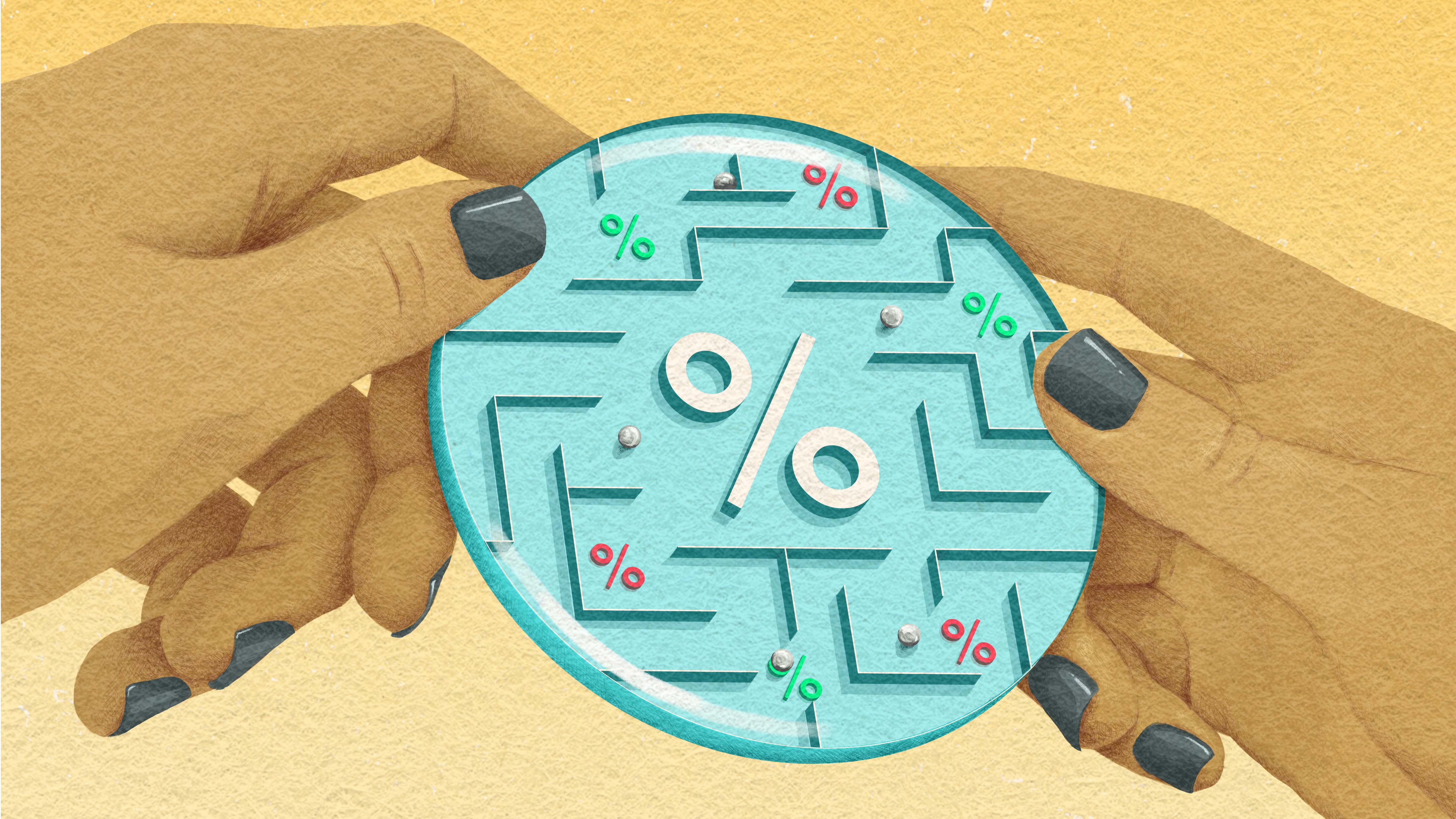
5 questions Canadians have about GICs right now
If you have some money you want to put away for the future, and require a guaranteed return, GICs may be an option for you. The combination of attractive interest rates and safety may be beneficial, especially with the recent higher interest rates for lending.
When the economy and stock markets are volatile and inflation is high, many people search for a way to save money that is both safe and practical. GICs (Guaranteed Investment Certificates) are an investment choice that some investors may look to in this type of environment. Here’s a practical primer on GICs that can help you determine whether they’re right for you.
What is a GIC?
A GIC is a product offered by banks and other financial institutions that pays a set rate of interest over a set term. It’s not like a savings account, because you must keep those dollars locked in for a few months or years, depending on the term you selected. (There are some exceptions, which we explain later.)
Unlike stocks and bonds, GICs are essentially loan contracts between you and your financial institution. As a result, the principal doesn’t fluctuate in value. However, once the term expires, the principal (the sum you deposited) is returned to you along with interest earned. At that point, unless you need the money for another purpose, you may choose to roll over the GIC into a new one, enabling your nest egg to compound over time. You can learn more about how compounding can help grow your savings even faster here.
Here are some important concepts to know when considering a GIC investment:
Term: The term is the amount of time your funds are “locked-in” to the GIC. When deciding on a term, ask yourself: How long can I do without the money? The longer the term, the higher the interest you’ll earn.
Features: There are many different characteristics for GICs, but generally people are interested in cashable GICs.
Renewal: Before maturity, you will be contacted to determine whether you wish to renew your GIC or confirm if your existing maturity instructions (for example, automatically renew) are accurate. If you do not wish to renew, contact your institution to ensure the GIC is paid out to you at maturity.
Are GICs safe investments?
One big advantage of GICs is the guaranteed interest. Like bank accounts, nearly all GICs are covered by the Canada Deposit Insurance Corporation (or provincial deposit insurance programs in the case of certificates issued by credit unions). That means that your money is protected up to a sum of $100,000, making GICs a safe place to invest. Here’s how the CDIC insurance works.
Investors should consider how inflation impacts the buying power of their dollars. If consumer prices are increasing, investments like GICs may help offset some of the burden of high inflation by providing a better interest return than if funds are not invested.
An investor should chat with their financial planner or advisor to discuss how to manage GICs in changing economic circumstances: The ratio of GICs and stocks in a portfolio, for example, may change depending on the cycle of the economic conditions.
GICs can serve a variety of investor goals, but they are particularly appealing to:
- People saving for a short- to medium-term goal — say, a wedding or a home purchase — who can’t afford to put their hard-earned savings at risk
- Those looking for fixed-income investments
- Individuals who wish to keep their money safe and value lower-risk options
Is my money locked in?
It depends on the type of GIC you purchase. Redeemability varies by the individual GIC and there may be a set period holding period for the GIC before withdrawal. With cashable GICs, you may withdraw funds according to the individual restrictions without penalty, however, you may have limitations on when you can redeem your funds, or you may have to opt for a lower interest rate. When considering a GIC, it’s best to consider all the different categories of GICs to see which is right for your situation.
Are there different types of GICs?
GICs come in a great variety. There are various terms although one- and two-year terms are popular. They generally have no fees if you hold them to term and some GICs come with interest payment options on a monthly, semi-annual, annual or compounded annual basis. Others only pay interest when you hold the GIC to maturity. Generally, non-cashable GICs do not allow for early withdrawals, although if you need to withdraw early in the case of death or financial hardship, you may have to pay a penalty or lose your interest payments to receive your funds.
Can you hold a GIC in an RRSP or other account?
GICs are eligible holdings for Registered Retirement Savings Plans (RRSPs), Registered Retirement Income Funds (RRIFs), Registered Educational Savings Plans (RESPs) and Tax-Free Savings Accounts (TFSAs), as well as non-registered accounts.
When you purchase a GIC in a tax-advantaged account like an RRSP, not only do you reduce your income taxes payable in the current year, but your interest payments are sheltered from taxation until you withdraw them in retirement. By that time, your marginal tax rate is likely to be lower.
Are GICs right for me?
GIC rates can vary and on their own may not be enough to allow you to reach your investment goals. This question, along with “How much should I invest?” is best answered by your financial advisor or planner in conjunction with a discussion about your larger financial plan.
This TD GIC selection tool can help you decide which GIC may be right for you.
DON SUTTON
MONEYTALK
ILLUSTRATION
DANESH MOHIUDDIN
















